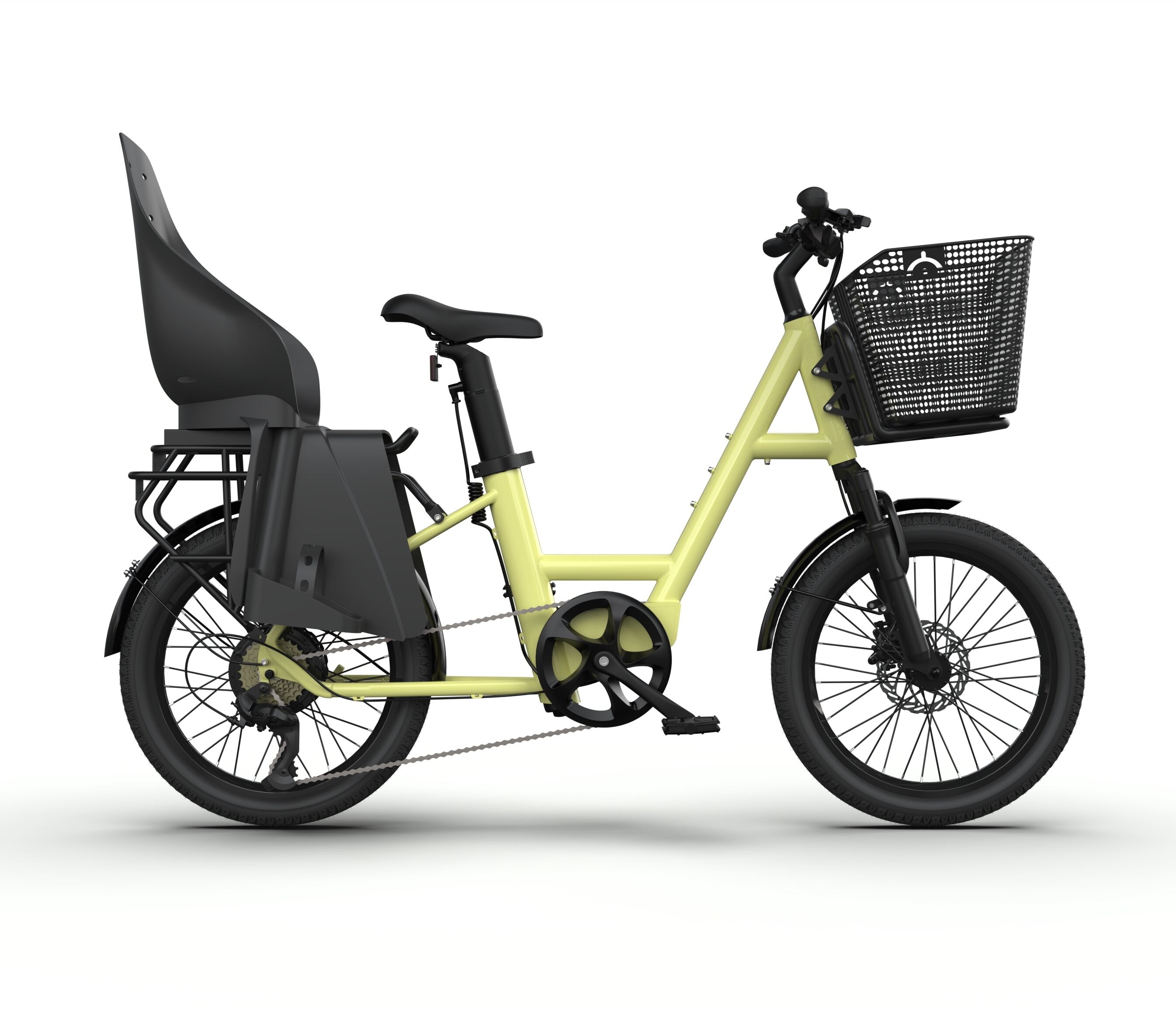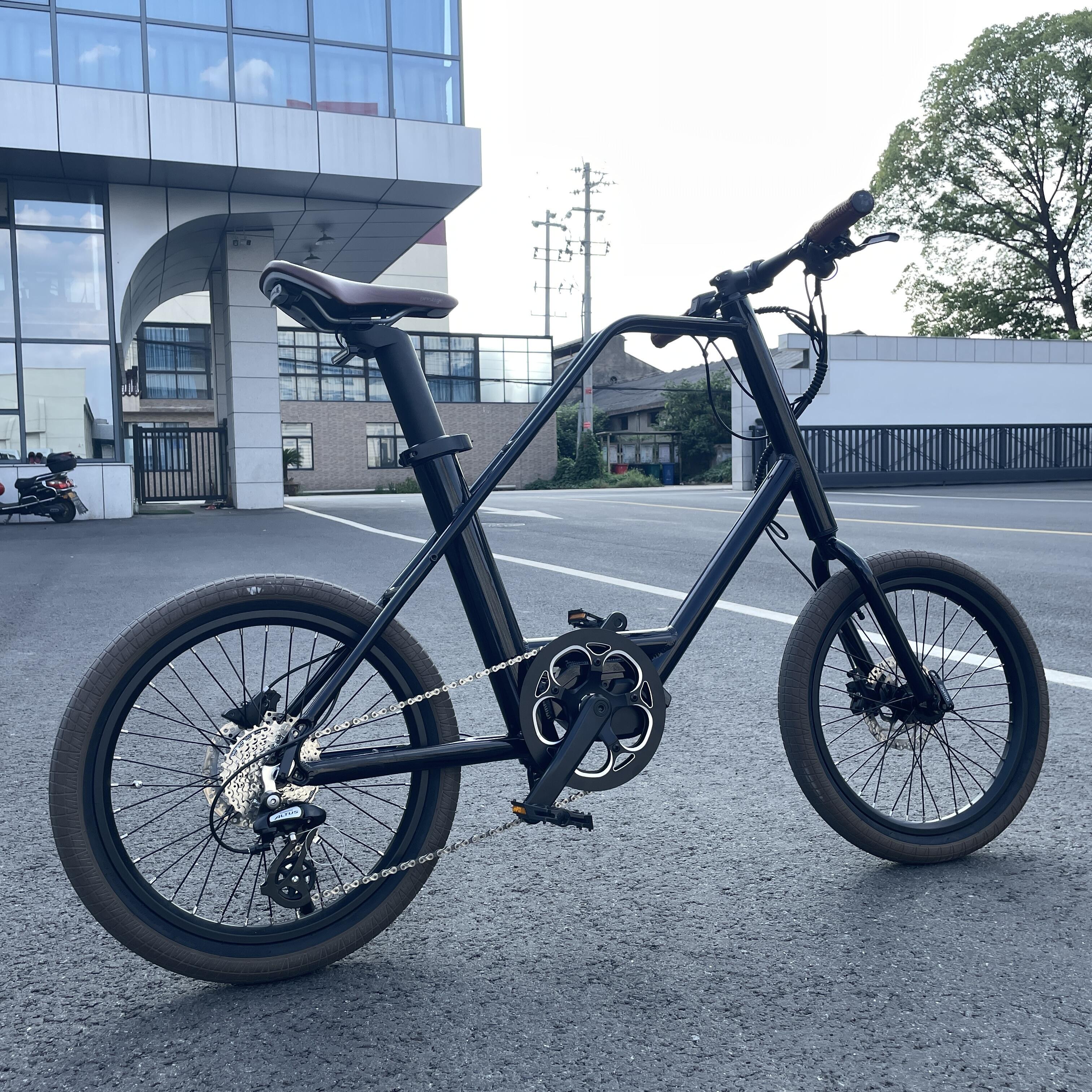Transforming Urban Mobility with Modern E-Bike Innovation
The urban landscape is evolving, and with it, the way we navigate our cities. City electric bikes have emerged as a revolutionary force in urban transportation, offering an elegant solution to modern mobility challenges. These sophisticated machines combine the simplicity of traditional cycling with cutting-edge electric assistance, creating an unparalleled way to experience city life.
As cities become increasingly congested and environmental concerns mount, city electric bikes represent more than just a trend – they're a sustainable answer to urban transportation needs. They provide an efficient, eco-friendly alternative that maintains the freedom and flexibility urban dwellers crave while adding an extra boost of power when needed.
The Technical Marvel of Urban E-Bikes
Advanced Motor Systems and Battery Technology
At the heart of city electric bikes lies sophisticated motor technology that provides seamless assistance while riding. These motors, typically mounted either in the hub or at the pedals, offer varying levels of support that can be adjusted to match your riding style and needs. The latest models feature brushless motors that deliver smooth, quiet operation and remarkable efficiency.
Modern lithium-ion batteries power these systems, offering impressive range capabilities that can easily handle daily commutes and extended urban excursions. Many city electric bikes now boast ranges of 40-80 miles on a single charge, depending on factors like terrain, rider weight, and assistance level. The batteries are often elegantly integrated into the frame design, maintaining the bike's sleek aesthetic while providing reliable power delivery.
Smart Features and Urban-Specific Design
Today's city electric bikes come equipped with an array of smart features designed specifically for urban environments. LCD displays provide real-time information about speed, battery level, and assistance modes. Integrated lights, cargo capabilities, and security features make these bikes practical for daily city life. The frames are engineered to provide an upright riding position, offering excellent visibility in traffic while maintaining comfort during longer rides.
Environmental and Health Benefits
Reducing Carbon Footprint
City electric bikes represent a significant step toward reducing urban carbon emissions. By choosing an e-bike over a car for short trips, riders can dramatically decrease their personal carbon footprint. Studies show that regular e-bike use can reduce an individual's transportation-related carbon emissions by up to 50%, making them an excellent choice for environmentally conscious city dwellers.
The environmental benefits extend beyond just emissions reduction. Less noise pollution, reduced road wear, and decreased demand for parking space all contribute to creating more livable urban environments. As cities worldwide push for greener transportation solutions, city electric bikes stand out as a practical and effective option.
Physical Activity and Mental Wellbeing
While city electric bikes provide motor assistance, they still offer significant health benefits. The pedal-assist nature of these bikes means riders are actively engaged in physical activity, with the motor simply making the exercise more manageable and enjoyable. This makes regular cycling accessible to people of varying fitness levels and ages.
The mental health benefits are equally important. Riding through the city on an electric bike reduces stress compared to sitting in traffic, and the combination of exercise and outdoor activity promotes better overall wellbeing. The joy of effortlessly cruising through city streets while still getting exercise creates a unique and satisfying experience.

Practical Advantages in Urban Settings
Navigating Traffic and Parking
City electric bikes excel in urban environments where traditional vehicles struggle. Their compact size allows riders to navigate through traffic efficiently, often reaching destinations faster than cars during peak hours. The ability to use bike lanes and shortcuts unavailable to automobiles provides a significant advantage in congested city centers.
Parking becomes remarkably simple with city electric bikes. Instead of searching for scarce parking spots or paying high fees, riders can typically secure their bikes in designated bike racks or bring them into offices and apartments. This convenience saves both time and money while eliminating the frustration of urban parking searches.
Cost-Effective Transportation
The economic benefits of city electric bikes are substantial when compared to other forms of urban transportation. After the initial investment, operating costs are minimal, limited to electricity for charging (typically just cents per charge) and basic maintenance. There are no fuel costs, parking fees, or expensive insurance premiums to consider.
Long-term savings extend to reduced vehicle wear and tear, eliminated parking expenses, and lower maintenance costs compared to cars. For many urban residents, city electric bikes can serve as a complete replacement for a second car or even primary vehicle, resulting in significant financial benefits over time.
Frequently Asked Questions
What is the typical range of a city electric bike?
Most modern city electric bikes offer a range between 40-80 miles on a single charge, depending on factors such as terrain, rider weight, weather conditions, and the level of electric assistance used. Some premium models may offer even greater range capabilities.
How long does it take to charge a city electric bike?
Charging times typically range from 3-6 hours for a full charge using a standard household outlet. Many newer models feature fast-charging capabilities that can reduce this time significantly, and some batteries are removable for convenient charging indoors.
Are city electric bikes worth the investment?
For urban dwellers, city electric bikes often prove to be an excellent investment when considering the combined savings on transportation costs, parking fees, and vehicle maintenance. The health benefits, environmental impact, and improved quality of life make them particularly valuable for regular city commuters and those looking to reduce their carbon footprint.

